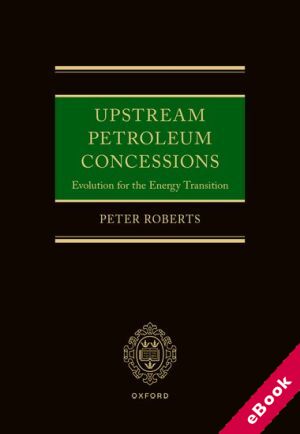
The device(s) you use to access the eBook content must be authorized with an Adobe ID before you download the product otherwise it will fail to register correctly.
For further information see https://www.wildy.com/ebook-formats
Once the order is confirmed an automated e-mail will be sent to you to allow you to download the eBook.
All eBooks are supplied firm sale and cannot be returned. If you believe there is a fault with your eBook then contact us on ebooks@wildy.com and we will help in resolving the issue. This does not affect your statutory rights.
For the last seventy years, upstream petroleum concessions have been granted worldwide by states to investors, in order to facilitate petroleum exploration and production for the state's benefit, but at the investor's risk and expense. This process has had to evolve in order to accomodate the increasing transition to net zero carbon forms of energy. This book examines the use of petroleum concessions, provides a guide to how they are granted, and how they could develop to accomodate the energy transition.
The book is split into three parts. Part A focuses on the relationship between the existing forms of concessions and the transition to net zero carbon emissions. It considers the logic from nation states for the use of concessions by states, as well as the form and mechanics for awarding them. Later chapters assess the impact of the transistion to net zero carbon emissions, the risks which it presents to states and investors, alongside examples of state-sponsored withdrawals from future petroleum exploration and production.
Part B offers a guide to the typical content of concessions. It examines the concession's scope, duration, area and how it is modified. The obligations and required standards of both the investor and the state are considered, as well as the fiscal terms (including taxation) and non-fiscal benefits which can accrue to the state under any deal, before considering any constitutional provisions included within the concession.